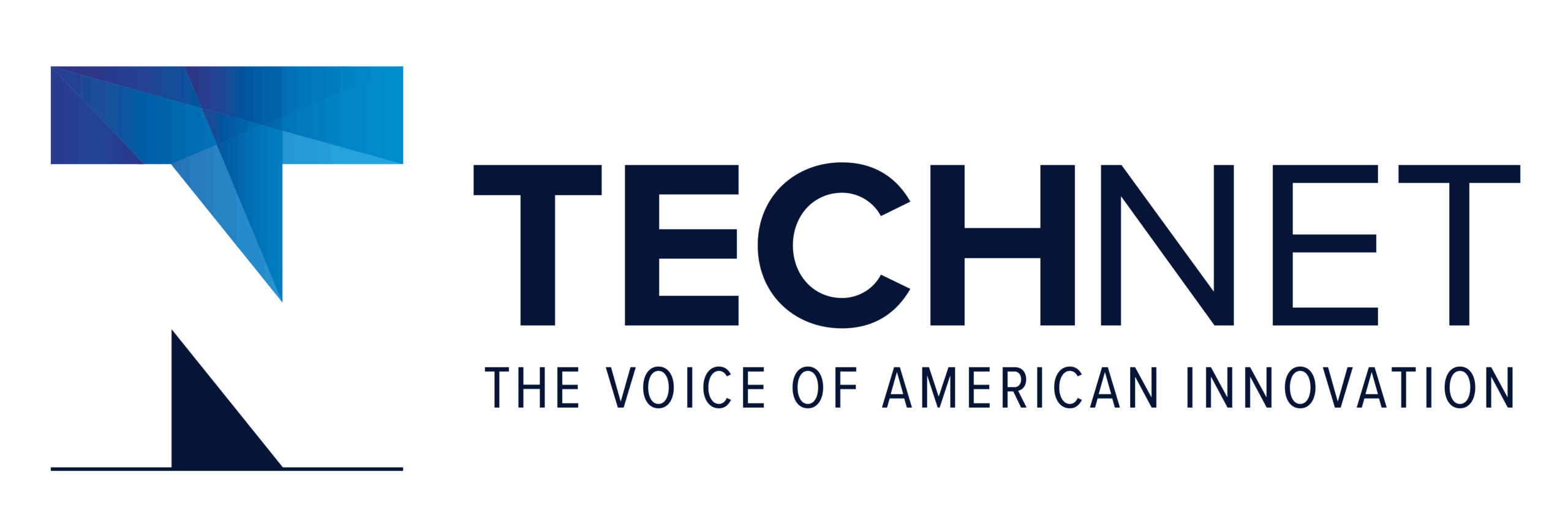May 14, 2019
The Honorable Roger Wicker
Chairman
Senate Committee on Commerce, Science, and Transportation
555 Dirksen Senate Office Building
Washington, D.C. 20510
The Honorable Maria Cantwell
Ranking Member
Senate Committee on Commerce, Science, and Transportation
511 Hart Senate Office Building
Washington, D.C. 20510
Dear Chairman Wicker, Ranking Member Cantwell, and Members of the Senate Committee on Commerce, Science, and Transportation,
TechNet is the national, bipartisan network of innovation economy CEOs and senior executives. We write to express our support for S. 737, the Building Blocks of STEM Act, and urge the full committee to pass it during the executive session scheduled for Wednesday, May 15, 2019.
TechNet’s diverse membership includes dynamic American businesses ranging from startups to the most iconic companies on the planet and represents over three million employees and countless customers in the fields of information technology, e-commerce, the sharing and gig economies, advanced energy, cybersecurity, venture capital, and finance. Access to talent is critical for our businesses to create jobs, develop world-class products, and grow.
We are fully committed to cultivating a homegrown and more inclusive STEM talent pipeline that empowers American students and workers to succeed in the rapidly changing economy. A top priority area is to ensure that girls are consistently engaged in STEM and computer science education throughout their academic careers. Passing S. 737, the Building Blocks of STEM Act, is a step in the right direction, as the bill would do the following:
- Focus National Science Foundation (NSF) STEM education programming on young children and award grants to encourage young girls to pursue computer science learning;
- Direct NSF to award research grants to increase understanding of the factors that contribute to the participation of young girls in STEM activities and to develop interventions in pre-K and elementary school classrooms to increase the participation of young girls in computer science; and
- Direct NSF to more equitably distribute funding for early childhood education in its Discovery Research PreK-12 program, which seeks to enhance the learning and teaching of STEM and address the immediate challenges that are facing PreK-12 STEM education.
We strongly support each of these objectives. Because of limited exposure to hands-on STEM and computer science education and training as well as a dearth of female mentors in these fields, women in the U.S. have been disproportionately locked out of jobs requiring these skills. Although women make up more than half of our workforce, they hold less than 20 percent of the tech jobs in this country. This urgently needs to change, and the current job market suggests we have plenty of room for improvement; there are currently over 500,000 vacant computing jobs across the U.S. because our education system is not producing enough skilled workers each year to fill them, and this skills gap is only growing. If we do not reverse this trend by 2020, there will be one million more computing jobs nationally than there will be graduates to fill them.
Critical to this effort is getting more girls interested in these fields at a young age and helping to keep them interested as they grow up. One survey shows that girls who do go on to take the advanced placement computer science course in high school are ten times more likely to major in computer science in college and go on to enjoy a rewarding career. The more girls we encourage to pursue these fields now, the more role models and mentors future generations will have to look to — and the greater progress we will make in developing a tech workforce that helps more of our people succeed and leads to better products because the diversity of our nation is reflected in them.
Helping more of America’s women and girls succeed in the modern economy is not only the right thing to do, it is also an economic imperative in order for the U.S. to be the global innovation leader in the 21st century. For these reasons, we strongly support S. 737, the Building Blocks of STEM Act. We appreciate the leadership of the bill’s lead sponsors, Senators Jacky Rosen (D-NV) and Deb Fischer (R-NE), and thank Senators Marsha Blackburn (R-TN), Shelley Moore Capito (R-WV), Catherine Cortez Masto (D-NV), and Brian Schatz (D-HI) for co-sponsoring it. We look forward to working with the bill’s proponents to ensure it is passed by the full Senate and House of Representatives, and signed into law this year.
Sincerely,
